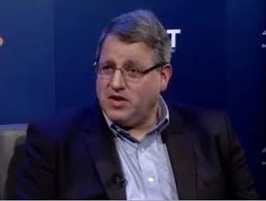In this video from the MVAPICH User Group, Dan Stanzione from TACC presents: Frontera – The Next Generation NSF HPC Resource, and Why HPC Still isn’t the Cloud.
Last summer, the Texas Advanced Computing Center (TACC) at the University of Texas at Austin was selected as the sole awardee of the National Science Foundation’s “Towards a Leadership Class Computing Facility” solicitation. The resulting machine, Frontera, became the #5 system in the world in the Top 500 list. In this talk, I will describe the main components of the award: the Phase 1 system, “Frontera”, the plans for facility operations and scientific support for the next five years, and the plans to design a Phase 2 system in the mid-2020s to be the NSF Leadership system for the latter half of the decade, with capabilities 10x beyond Frontera. The talk will also discuss the key role MVAPICH and Infiniband play in the project, and why the workload for HPC still can’t fit effectively on the cloud without advanced networking support.
Dr. Dan Stanzione, Associate Vice President for Research at The University of Texas at Austin since 2018 and Executive Director of the Texas Advanced Computing Center (TACC) since 2014, is a nationally recognized leader in high performance computing. He is the principal investigator (PI) for a National Science Foundation (NSF) grant to acquire and deploy Frontera, which will be the fastest supercomputer at any U.S. university. Stanzione is also the PI of TACC’s Stampede2 and Wrangler systems, supercomputers for high performance computing and for data-focused applications, respectively. For six years he was co-PI of CyVerse, a large-scale NSF life sciences cyberinfrastructure. Stanzione was also a co-PI for TACC’s Ranger and Lonestar supercomputers, large-scale NSF systems previously deployed at UT Austin. Stanzione received his bachelor’s degree in electrical engineering and his master’s degree and doctorate in computer engineering from Clemson University.
See more talks from the MVAPICH User Group
Check out our insideHPC Events Calendar




